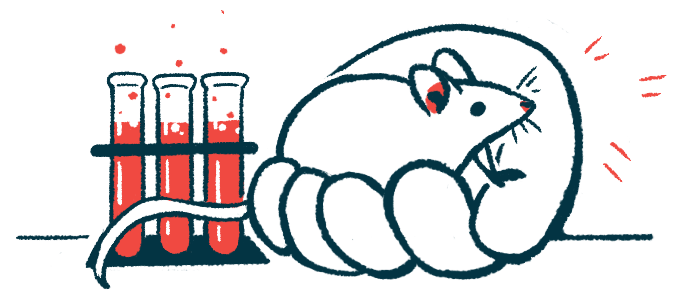COPD Trial for JadiCells Eyed on the Strength of COVID-19 Study Results
Written by |

JadiCells, the investigational stem cell therapy by Therapeutic Solutions International (TSOI), preserved lung function and increased the number of cells thought to have a role in lung repair in mice with inflammation-induced lung injury, the company announced.
These preclinical findings further support the potential of JadiCells to both prevent excessive inflammation and lung injury and also repair established lung tissue damage as seen in chronic lung diseases such as chronic obstructive pulmonary disease (COPD) and idiopathic pulmonary fibrosis (IPF).
TSOI filed a patent last year covering the therapeutic use of JadiCells and its multiple combinations in COPD. The therapy is currently being tested in clinical trials for treating severe COVID-19 and has shown promising results.
“As we are finalizing preparations for initiation of our Phase 3 COVID-19 lung failure clinical trial, I am proud to report that significant basic scientific progress is being made, which is setting the foundation for possible expansion into COPD and IPF which represent a significant unmet medical need,” Timothy Dixon, TSOI’s president and CEO, said in a press release.
“Based on my medical experience, the currently published data on the JadiCells, and what I have personally observed from administration under the Right to Try exemption, I believe that these cells represent a paradigm shift in the way we approach lung disease,” James Veltmeyer, MD, TSOI’s chief medical officer, said.
JadiCells comprise a type of mesenchymal stem cell (MSC) derived from cells lining the umbilical cord. MSCs are adult stem cells that are present in various tissues — including the umbilical cord, bone marrow, and fatty tissue — that can both self-renew and mature into many other cell types.
They are gaining increasing interest as a potential therapeutic approach for a number of conditions due to their strong immunosuppressive, anti-inflammatory, neuroprotective, and regenerative properties.
Compared with other stem cells, JadiCells are thought to produce higher amounts of certain therapeutic factors, and may be stimulated in different ways to increase their regenerative properties, according to TSOI.
COPD is marked by excessive airway inflammation, lung tissue remodeling, and the progressive destruction of alveoli, the tiny lung air sacs responsible for gas exchange. This is associated with the death of alveolar epithelial cells, which line the alveoli, and a reduced capacity of alveolar epithelial progenitors to counteract this defect.
JadiCells were previously shown to be superior to stem cells obtained from other sources at reducing lung injury in a mouse model of emphysema, a severe form of COPD.
The stem cell therapy may regulate inflammatory responses in the lungs by reducing the levels of the pro-inflammatory molecule TLR4 and increasing those of MerTK, an anti-inflammatory protein, according to data.
These findings support JadiCells’ therapeutic potential in COPD and other lung conditions.
“The field of cell therapy is the future of medicine, however, in order to maximize their potential benefits, we need to always strive to learn as much about their science as possible,” said Thomas Ichim, PhD, a board member of TSOI.
“TSOI in my opinion is unique because we follow the science instead of trying to force the science to fit in a narrative,” Ichim added.






